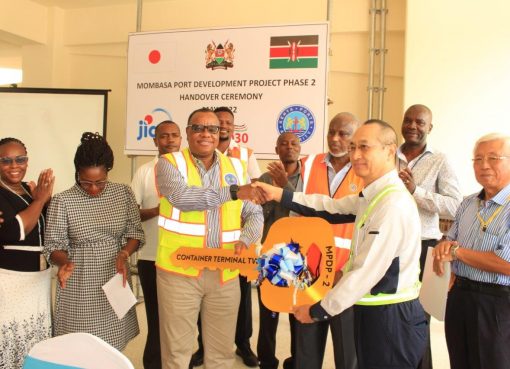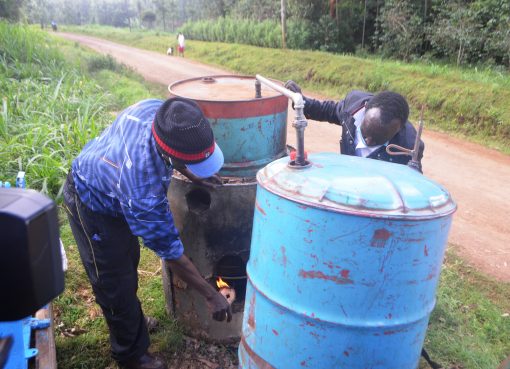Kenya Space Agency (KSA) has held its 2nd Edition Expo and Conference to enhance the utility of space technologies and its application in supporting national socioeconomic development and addressing societal challenges.
The three-day conference themed Space Technologies for Societal Benefits aims to promote, coordinate and regulate space related activities in the country which seeks to bring the complex topic of space science and technologies making it relevant to citizens.
Speaking at the event, Cabinet Secretary (CS) for Defense Adan Duale highlighted that space technology and related applications support key productive sectors of the national economy including communication, digital economy, agriculture, food security among others.
He added that the space technology enables environmental mentalis and facilitates mitigation on contemporary threats of human security and public safety including climate change, natural disaster, famine and drought among others.
“According to the survey report, the global space economy stood at 630 billion dollars in 2023 and is projected to reach US dollar 8trillion in 2035,” he revealed.
The CS stated that the space economy is expected to be ambitious, since it is going to create value for industries and solutions to citizens and the rest of the world that is pressed by challenges.
According to Duale, it will constitute a large part of the global economy by 2035 with the growth expected to be driven by space based or space enabled technology and earth observation.
He acknowledged that the government is taking the national space program seriously as it continues to invest all the necessary resources in order to recoup returns on investments including economic, technological and geopolitical benefits.
“Kenya has built a human and technical capacity and national capacity in space science, space system engineering, earth observation and remote sensing through collaboration with international partners,” maintained the CS.
Additionally, Duale observed that this collaboration has facilitated sharing of lessons learned, ideas on the best practices and innovation on capacity building, citing that the country has created a space policy and legislative program that will harness space drive data.
Further, the CS announced that Kenya is collaborating with partners such as the Republic of South Africa, Angola, and Nigeria among others to develop indigenous capacity space systems and enhance the utilization of space service in order to improve economic development.
At the same time, Kenya Space Agency Director General (DG) Brigadier Hillary Kipkosgei said that the overarching purpose of the conference is to create awareness and elevate conversations around space exploration and exploitation to the national level for key policy and decision making.
“Space technology and space enabled technology has become so pervasive and common use in our everyday lives yet majority take it for granted, but still interact with it in ride hailing, automatic timing, weather navigation among others,” noted Kipkosgei.
The DG mentioned that space is hard and truly a rocket science thus the expo and conference, which he hopes will simplify the subject and demonstrate its utility and the benefit that can be derived from investing and leveraging on space capabilities.
“We look forward to winning some converts not out of mere rhetoric but because of used space from the liberation and exhibition which will bring output and provide a view to the end of the possible benefit derived from the effective space exploration and exploitation,” he remarked.
Kipkosgei announced that the structure of the conference contains the sessions which will most importantly inspire and mentor the young generation, unlock the potential of the private sectors, have opportunity for women in the space and STEM sector and mainstream food security among others.
He highlighted the expected outcomes of the expo and conference including enhancing awareness of social economic development, promotion of development of the local and regional space industry, opportunity for collaboration, appreciation of essential policy, statutory and regulation framework among others.
By Sharon Atieno




